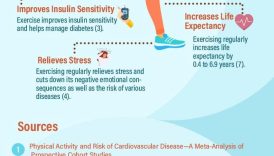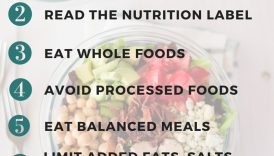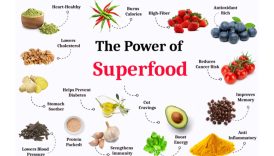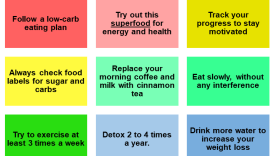5 Reasons Why Living Good Vitamins Should Be Your Daily Essential

Importance of Essential Vitamins
In today’s fast-paced world, the significance of essential vitamins cannot be overstated. These organic compounds play crucial roles in maintaining various bodily functions. From supporting the immune system to promoting bone health, vitamins are the unsung heroes of our daily nutrition. For instance, let’s consider vitamin C. This powerful antioxidant aids our body in fighting off infections and supports skin health. Similarly, vitamin A is fundamental for vision and maintaining a robust immune response. It’s evident that each vitamin contributes uniquely to our well-being, ensuring we function at our best.
- 5 Reasons Why Living Good Vitamins Should Be Your Daily Essential
- Importance of Essential Vitamins
- Benefits of Incorporating Good Vitamins Daily
- Vitamin A: Enhancing Vision and Immunity
- Role of Vitamin A in Eye Health
- Boosting the Immune System with Vitamin A
- Vitamin C: Supporting Immune Function and Collagen Production
- How Vitamin C Fights Illness
- Promoting Skin Health through Collagen Synthesis
- Vitamin D: Maintaining Bone Health and Mood
- Importance of Vitamin D for Strong Bones
- Impact of Vitamin D on Mental Health
- Vitamin E: Antioxidant Protection and Skin Nourishment
- Fighting Free Radicals with Vitamin E
- Nourishing and Hydrating Skin with Vitamin E
- Vitamin B Complex: Energy Production and Brain Function
- Role of B Vitamins in Metabolism
- Supporting Cognitive Function with B Vitamins
Benefits of Incorporating Good Vitamins Daily
Adopting a routine that includes essential vitamins can lead to a cascade of health benefits. Here are some compelling reasons to consider:
- Enhanced Energy Levels: Vitamins like B-complex energize your metabolism, keeping fatigue at bay.
- Improved Immune Function: With a solid dose of vitamins C and D, you’ll be bolstering your body’s defenses against common illnesses.
- Better Skin Health: Vitamins A and E nourish the skin, promoting a youthful appearance and combatting environmental damage.
For example, a friend of mine started taking a daily multivitamin. Within weeks, she noticed a significant boost in her energy, and her skin appeared healthier and more radiant. This simple change made a remarkable impact on her daily life. Incorporating a variety of vitamins into your diet could be as easy as enjoying colorful fruits and vegetables, and possibly supplementing when necessary. Remember, a well-rounded approach to nutrition is not only beneficial but essential for long-term health.
Vitamin A: Enhancing Vision and Immunity
Role of Vitamin A in Eye Health
Vitamin A is often hailed as the superstar of eye health. This essential vitamin is pivotal for maintaining good vision and protecting against age-related decline. It is primarily found in two forms: retinol, which is found in animal products, and provitamin A carotenoids, commonly found in fruits and vegetables like carrots, sweet potatoes, and leafy greens. One of the most remarkable features of vitamin A is its role in forming rhodopsin, a pigment in the retina that allows us to see in low-light conditions. Without adequate vitamin A, you might find yourself straining your eyes in dim situations or experiencing night blindness. It’s a vivid reminder of the significance of a nutrient-rich diet, as I learned when my grandmother began including more colorful vegetables in her meals. She often shared how her vision improved during evening walks after adding carrots to her diet!
Boosting the Immune System with Vitamin A
Beyond eye health, vitamin A also plays a crucial role in bolstering the immune system. It helps produce white blood cells, which are essential for defending the body against infections. Additionally, vitamin A aids in maintaining the integrity of skin and mucosal cells, acting as a barrier to pathogens. Consider these points:
- Supports Immune Responses: Vitamin A enhances the body’s ability to produce antibodies and fight infections.
- Promotes Healthy Skin: By supporting cell production, it keeps your skin resilient against various irritants.
Including vitamin A-rich foods in your diet can be simple. Think about adding spinach to your salads or enjoying a sweet potato as a side dish—delicious and beneficial! On a personal note, I’ve noticed how my family’s overall health improved after we made a concerted effort to prioritize these foods, highlighting the profound impact of vitamin A on our health journey.
Vitamin C: Supporting Immune Function and Collagen Production
How Vitamin C Fights Illness
Vitamin C, also known as ascorbic acid, is widely recognized for its robust support of the immune system. This essential nutrient acts as a powerful antioxidant, helping to fend off free radicals that can harm cells, including immune cells. When attackers like viruses and bacteria invade our bodies, vitamin C is there, rallying our immune defenses and aiding in the production of white blood cells—our body’s soldiers in the fight against illness. One memorable instance was when I caught a nasty cold last winter. As a proactive measure, I started incorporating vitamin C-rich foods like oranges, strawberries, and bell peppers into my daily diet. To my delight, the duration of my cold seemed shorter, and my recovery felt smoother. This was a personal reminder of how effective vitamin C can be in warding off illness and boosting resilience.
Promoting Skin Health through Collagen Synthesis
Not only does vitamin C bolster our immune function, but it also plays an integral role in maintaining skin health through collagen synthesis. Collagen is the protein responsible for skin elasticity and youthfulness, and adequate vitamin C levels are critical for its production. Consider these key benefits:
- Enhanced Skin Elasticity: Vitamin C helps maintain the skin’s firmness by promoting collagen production, reducing the appearance of wrinkles.
- Improved Wound Healing: Its role in collagen synthesis aids in quick healing of cuts and bruises.
Integrating vitamin C into your diet can be both easy and delicious. Citrus fruits, kiwi, and even broccoli are fantastic sources! I remember making a vibrant fruit salad loaded with fruits high in vitamin C, not only to boost my immune system but also to pamper my skin. The bright colors were aesthetically pleasing, and the health benefits spoke for themselves, making vitamin C an essential part of my daily routine.
Vitamin D: Maintaining Bone Health and Mood
Importance of Vitamin D for Strong Bones
Vitamin D is often referred to as the “sunshine vitamin” because our bodies produce it in response to sunlight. Its most crucial role is maintaining bone health by enhancing calcium absorption in the gut. Without sufficient vitamin D, bones can become brittle or weak, leading to conditions such as osteoporosis, particularly in older adults. I remember a time when my father was diagnosed with early signs of bone density loss. His doctor emphasized the importance of getting more vitamin D, not just from sun exposure but also from foods like fatty fish, egg yolks, and fortified dairy products. After integrating these foods into our meals, and ensuring he spent more time outdoors, he noticed a significant improvement in his overall bone health. Key benefits of vitamin D for bones include:
- Optimized Calcium Levels: Helps maintain optimal levels of calcium and phosphate in the body.
- Reduced Risk of Fractures: Stronger bones result in a lower likelihood of fractures and breaks, especially among seniors.
Impact of Vitamin D on Mental Health
Beyond its vital role in bone health, vitamin D significantly impacts mental well-being. Research suggests a correlation between low levels of this vitamin and the onset of mood disorders, such as depression. This is particularly relevant during the winter months when sun exposure decreases, affecting many people’s moods. Consider these aspects:
- Mood Regulation: Vitamin D receptors are present in areas of the brain responsible for mood regulation, suggesting that this vitamin plays a role in emotional stability.
- Potential for Reduced Depression Symptoms: Some studies have shown that higher vitamin D levels may be linked to lower rates of depression.
In my own experience, I noticed that sunny days greatly lifted my spirits. When winter months kept me indoors, I made a conscious effort to supplement my vitamin D intake. Incorporating foods rich in vitamin D and spending time outside, even when it was cold, helped maintain my mood and energy levels. The correlation between vitamin D, bone health, and mental wellness is a powerful reminder to prioritize this essential vitamin for overall health.
Vitamin E: Antioxidant Protection and Skin Nourishment
Fighting Free Radicals with Vitamin E
Vitamin E is often celebrated for its remarkable antioxidant properties. This essential vitamin plays a vital role in protecting our cells from damage caused by free radicals—unstable molecules that can lead to chronic diseases and accelerate aging. By neutralizing these harmful agents, vitamin E helps keep our bodies and skin healthy and vibrant. For instance, I remember reading about how exposure to pollution and UV light can increase oxidative stress on the skin. Inspired by this, I added vitamin E-rich foods like almonds, spinach, and avocados to my diet. This simple change not only boosted my nutritional intake but also made me feel more empowered about my health. The protective benefits of vitamin E resonated with me as I realized how crucial it is in combating daily environmental stressors. Here are some key points regarding vitamin E’s role in fighting free radicals:
- Cell Protection: Helps to shield cells from oxidative damage.
- Potential Disease Prevention: May reduce the risk of heart disease and certain cancers due to its antioxidant effects.
Nourishing and Hydrating Skin with Vitamin E
In addition to its antioxidant capabilities, vitamin E is a powerhouse for skin health. It acts as a natural moisturizer, providing hydration and nourishment. This is particularly beneficial for those with dry or irritated skin, as vitamin E helps restore moisture and maintains skin elasticity. Consider these effects:
- Skin Repair: Vitamin E aids in healing scars and reducing inflammation.
- Enhanced Complexion: Regular use can lead to a more radiant and youthful appearance.
I can personally attest to the hydrating benefits of vitamin E. After incorporating vitamin E oil into my skincare routine, I noticed a significant transformation in my skin’s texture and moisture levels. Applying it after cleansing not only helped prevent dryness but also gave my skin a healthy glow. In summary, whether fighting free radicals or providing nourishment, vitamin E is an essential nutrient that deserves a place in both our diets and skincare routines. Making small, intentional changes to include this vitamin can significantly enhance overall health and skin vitality.
Vitamin B Complex: Energy Production and Brain Function
Role of B Vitamins in Metabolism
Vitamin B complex encompasses a group of essential vitamins that play critical roles in energy production and metabolism. Comprising eight distinct vitamins—B1 (thiamine), B2 (riboflavin), B3 (niacin), B5 (pantothenic acid), B6 (pyridoxine), B7 (biotin), B9 (folate), and B12 (cobalamin)—each has unique functions that contribute to converting food into usable energy. One of my friends, an avid runner, always emphasized the importance of her B vitamin intake. She’d load up on whole grains, lean meats, and green leafy vegetables, all rich in B vitamins. As she explained, these nutrients help the body break down carbohydrates, fats, and proteins effectively, fueling her workouts and keeping her energy levels up throughout the day. Here are some key roles of B vitamins in metabolism:
- Energy Production: B vitamins work collaboratively to metabolize food into energy.
- Red Blood Cell Formation: B12, in particular, is essential for the production of red blood cells, ensuring oxygen transport throughout the body.
Supporting Cognitive Function with B Vitamins
Beyond their role in metabolism, B vitamins are crucial for maintaining cognitive function. They are involved in the production of neurotransmitters, which are chemicals that transmit signals in the brain. Deficiencies in specific B vitamins, particularly B6, B9, and B12, have been linked to memory impairment and increased risk of cognitive decline. Consider these benefits:
- Enhanced Mood: Adequate levels of B vitamins may help support mood regulation and reduce symptoms of anxiety and depression.
- Improved Concentration: B vitamins can enhance focus and mental clarity, vital for students and professionals alike.
In my experience, whenever I feel mentally foggy, I reach for snacks that are high in B vitamins, like a banana or a handful of nuts. This simple habit helps clear my mind and boosts my focus. Overall, the B vitamin complex is invaluable for energy production and cognitive function. Integrating a variety of B vitamin-rich foods into your daily meals can significantly influence your energy levels and mental well-being, paving the way for a more vibrant, productive lifestyle.





